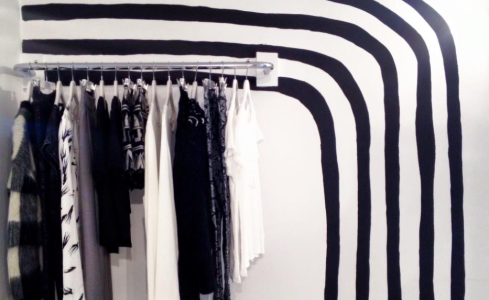Iconic fashion label to close 10 stores, focus shifts to online sales
By
Gian T
- Replies 5
In a move that has sent ripples through the Australian fashion industry, iconic clothing brand Sass & Bide has announced the closure of 10 standalone stores nationwide.
This decision marks a significant shift in the retail landscape and has raised questions about the country's future of brick-and-mortar fashion outlets.
Sass & Bide has been a beacon of Australian style for over two decades, and it is known for its bold designs and edgy aesthetic.
Established in 1999 by Sarah-Jane Clarke and Heidi Middleton, the brand quickly gained a cult following and became a staple in the wardrobes of fashion-forward Australians.
However, the retail landscape is changing, and even the most beloved labels are not immune to the challenges of the modern market.
The closures are set to impact multiple employees, with job cuts on the horizon.
Sass & Bide CEO Paula Mackenzie has committed to supporting affected staff, stating, 'We will be offering all available support to them and will offer redeployment, where possible, for our store team members.'
Mackenzie also noted that these tough decisions are aimed at repositioning the business for sustainable growth in the future.
The reduction in physical stores is accompanied by a decrease in support office roles, although the specific number of jobs affected remains unclear.
This strategic move reflects a broader retail trend, where brands increasingly focus on concessions and online sales channels to meet consumers' evolving demands.
Mackenzie elaborated on the shift, explaining, 'We have been reviewing the store footprint for S&B to ensure it is aligned with our popular in-store concessions and growing online business, meeting the needs of our loyal customers and operating sustainably.'
In line with this strategy, there are plans to expand the presence of sister brands Marcs and David Lawrence within Myer stores, leveraging their popularity and customer demand.
Sass & Bide, now wholly owned by Myer, has been part of the retail giant's portfolio since 2011 when Myer acquired a controlling stake for $42.3 million, followed by the remaining shares in 2013 for an additional $30 million.
Despite this integration, the brand, Marcs, and David Lawrence have experienced 'underperformance', contributing to Myer's reported sales drop of 2.9 per cent in the last financial year.
This downturn has been attributed to a weak trading environment and the need for additional discounting.
The announcement of store closures is a sobering reminder of the volatile nature of the fashion retail sector.
As consumers increasingly turn to online shopping, traditional stores must adapt or face the possibility of downsizing or closure.
For Sass & Bide, this means a pivot towards a model that balances a reduced physical presence with an enhanced online experience.
This news may shock our readers, particularly those who have cherished the in-store Sass & Bide experience.
 How do you feel about the shift towards online shopping? Will you miss the physical stores, or do you welcome the convenience of digital retail? We’d love to hear your thoughts in the comments below.
How do you feel about the shift towards online shopping? Will you miss the physical stores, or do you welcome the convenience of digital retail? We’d love to hear your thoughts in the comments below.
This decision marks a significant shift in the retail landscape and has raised questions about the country's future of brick-and-mortar fashion outlets.
Sass & Bide has been a beacon of Australian style for over two decades, and it is known for its bold designs and edgy aesthetic.
Established in 1999 by Sarah-Jane Clarke and Heidi Middleton, the brand quickly gained a cult following and became a staple in the wardrobes of fashion-forward Australians.
However, the retail landscape is changing, and even the most beloved labels are not immune to the challenges of the modern market.
The closures are set to impact multiple employees, with job cuts on the horizon.
Sass & Bide CEO Paula Mackenzie has committed to supporting affected staff, stating, 'We will be offering all available support to them and will offer redeployment, where possible, for our store team members.'
Mackenzie also noted that these tough decisions are aimed at repositioning the business for sustainable growth in the future.
The reduction in physical stores is accompanied by a decrease in support office roles, although the specific number of jobs affected remains unclear.
This strategic move reflects a broader retail trend, where brands increasingly focus on concessions and online sales channels to meet consumers' evolving demands.
Mackenzie elaborated on the shift, explaining, 'We have been reviewing the store footprint for S&B to ensure it is aligned with our popular in-store concessions and growing online business, meeting the needs of our loyal customers and operating sustainably.'
In line with this strategy, there are plans to expand the presence of sister brands Marcs and David Lawrence within Myer stores, leveraging their popularity and customer demand.
Sass & Bide, now wholly owned by Myer, has been part of the retail giant's portfolio since 2011 when Myer acquired a controlling stake for $42.3 million, followed by the remaining shares in 2013 for an additional $30 million.
Despite this integration, the brand, Marcs, and David Lawrence have experienced 'underperformance', contributing to Myer's reported sales drop of 2.9 per cent in the last financial year.
This downturn has been attributed to a weak trading environment and the need for additional discounting.
The announcement of store closures is a sobering reminder of the volatile nature of the fashion retail sector.
As consumers increasingly turn to online shopping, traditional stores must adapt or face the possibility of downsizing or closure.
For Sass & Bide, this means a pivot towards a model that balances a reduced physical presence with an enhanced online experience.
This news may shock our readers, particularly those who have cherished the in-store Sass & Bide experience.
Key Takeaways
- Australian fashion brand Sass & Bide is set to close ten standalone stores around the country, impacting several jobs.
- CEO Paula Mackenzie has pledged support and possible redeployment for affected store team members.
- The closure decision aligns with a strategic shift towards concessions and online retail, aiming for sustainable business growth.
- The brand, owned by Myer, has seen a sales decline, with Myer attributing underperformance to a challenging retail environment and increased discounting.








